After receiving the Lumen Christi Award in November 2020, Father Ron Foshage, M.S., shows no signs of slowing down.
The pastor in Jasper, Texas, known for his work of facilitating reconciliation following one of the worst hate crimes in American history (the brutal 1998 dragging death of James Byrd Jr.), has only added more to his already full plate of ministry.
Now, at the age of 75, he continues to pastor five churches dispersed in the rural peripheries of the Diocese of Beaumont, Texas. He logs more than 800 miles a week to cover his six weekend Masses.
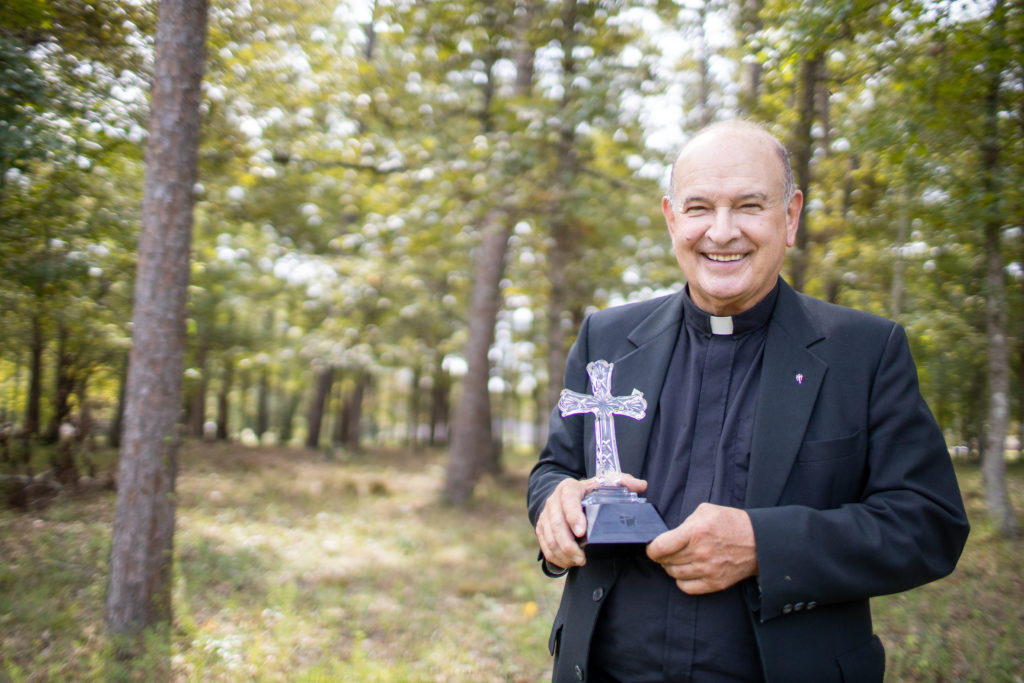
As if that were not enough responsibility, he is a chaplain for two large prisons, offering weekly counseling, Mass and confessions.
He also serves on four boards for various local nonprofit organizations that address housing, education, hunger and interracial and ecumenical dialogue in Jasper County. What’s more, he serves on the provincial council for his religious congregation, the Missionaries of La Salette.
To decompress, he plays the violin, rescues animals and volunteers to cut 15 lawns a week for local residents.
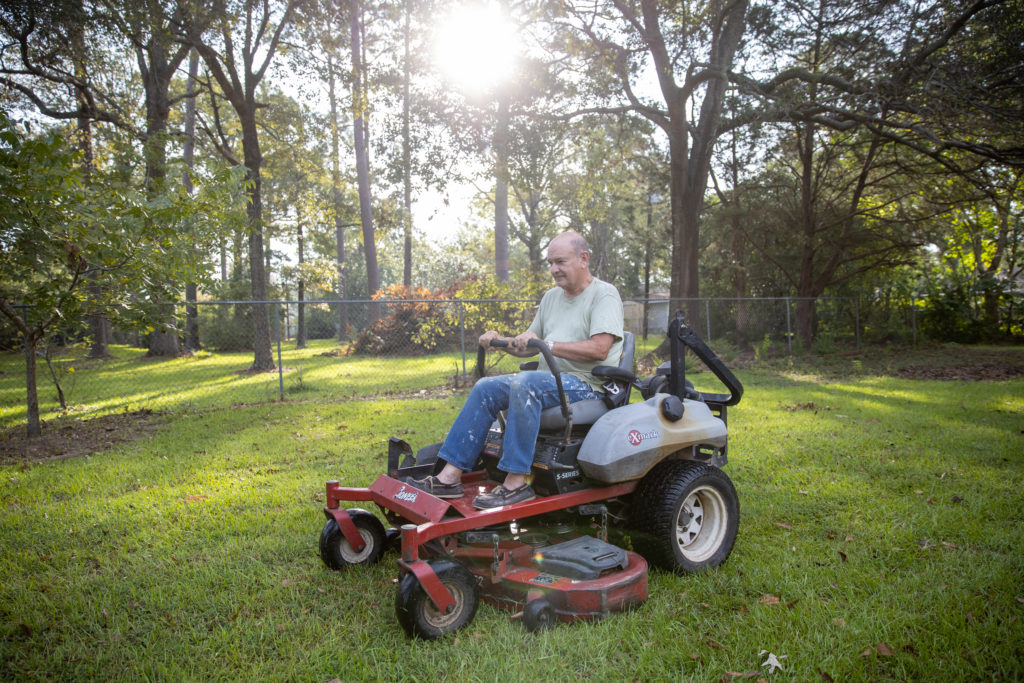
His days often begin at 7 a.m. and end at 9 p.m. But this energetic and beloved pastor, who has selflessly served this community since 1985, has every intention of continuing his hectic pace.
He said with total sincerity,
I haven’t done anything extraordinary. Lots of priests do hard work.”
“When I was nominated [for the Lumen Christi Award], I thought it was a joke. Those other nominees were so worthy,” he added. He feels he is simply doing what he is called to do.
Care for the poor and homeless
Everything Father Foshage has done in his distinguished life has been motivated by his “preferential option for the poor,” a core tenant of Catholic social teaching and a grounding principle of his religious community.
He is very proud that Catholics, who are a small minority in East Texas, have a strong reputation of helping the poor. Oftentimes, his rectory doorbell will ring at 10 p.m. Standing there will be people who have been sent to him from other churches with explicit instructions: “Go to the Catholic Church. They help the poor.”
This orientation toward the poor and marginalized is what led Father Foshage to join the board of the Rural Homeless Network, a relatively new nonprofit in Kirbyville, Texas, which seeks to respond to homelessness among military veterans.
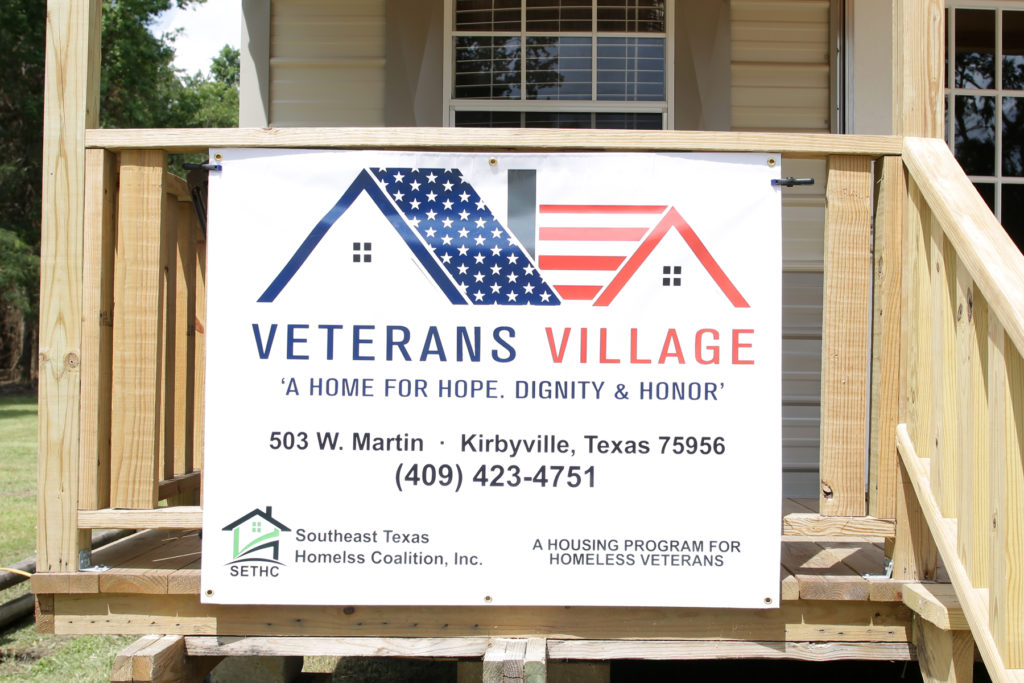
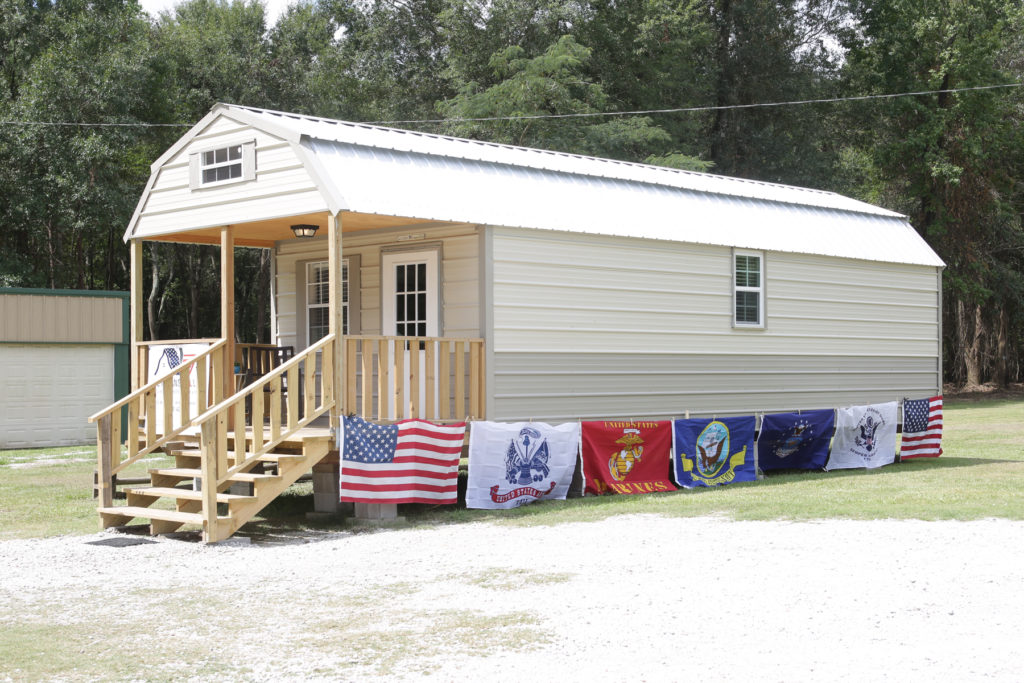
After conducting an initial survey of need to build their case for the nascent organization, Father Foshage and his co-founders were shocked by how many homeless were in their midst—often tucked away, living in tents in the woods.
Using his money from Catholic Extension Society’s Lumen Christi Award, Father Foshage provided the seed funding to help create a village of tiny homes for unsheltered veterans.
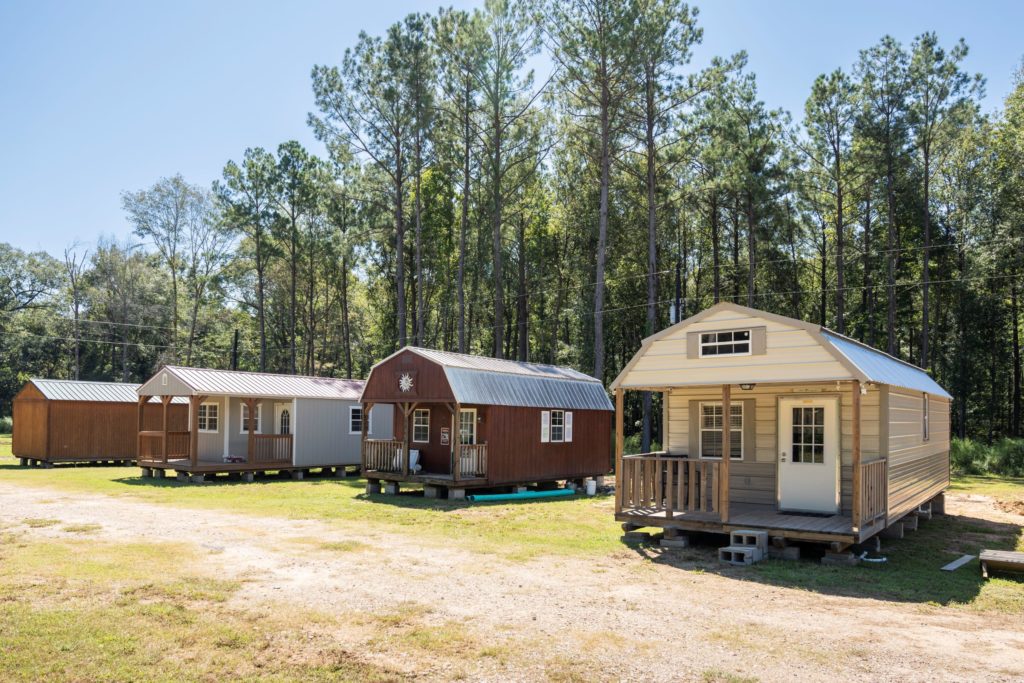
To date, five homes have been built. This past May, the first beneficiary, Mike Raffa, moved into the village. Raffa was a member of the Air Force military police. After a series of unfortunate circumstances in his life, he became homeless.
Rural Homeless Network’s executive director, Wes Bell, encountered Raffa living under a bridge with a sign that said “Homeless Veteran.” In the words of Raffa, he was “rescued” that day.
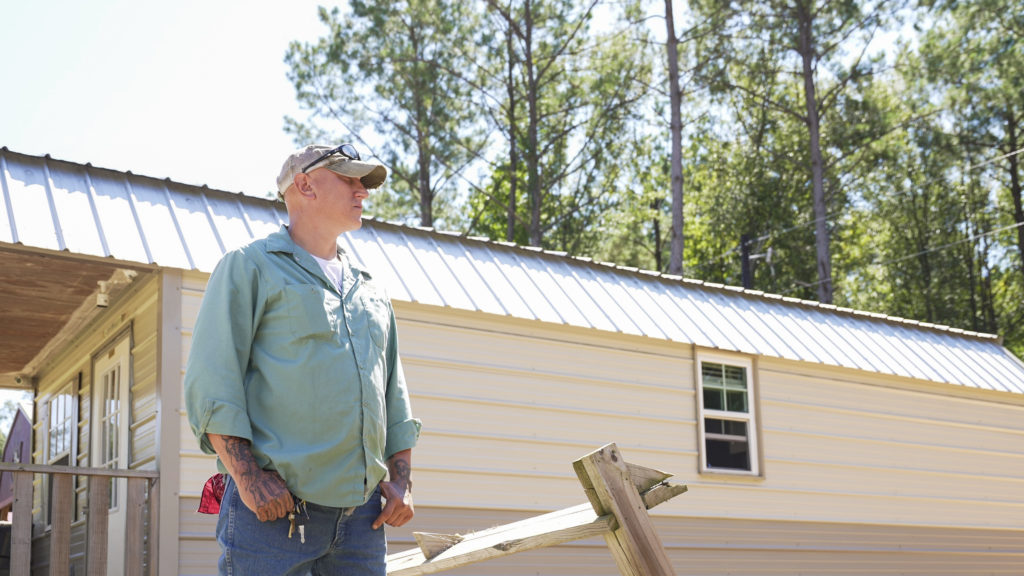
Today, with a 336-square-foot roof over his head, Raffa works as a maintenance man and feels abundantly blessed to be the first of hopefully many other rural homeless veterans to be “rescued.”
Raffa said,
There are a lot of people who need help, not just a handout but a hand up.”
After being homeless for one full year, he reflected that the hardest part was that “people look at you as if you don’t even exist.”
He appreciates not only the house but the human dignity and opportunity to work that is being given to him.
Heroes helping heroes
For Bell, the quest to help veterans is deeply personal. He lost his father, a Thunderbird pilot in the Air Force, during the Vietnam War when he was only 10. His son is currently an F-16 pilot in the Air Force. The fact that there are 15,000 unsheltered veterans throughout the country is a reality that Bell and Father Foshage hope to change in East Texas as well as nationally by mentoring other organizations working with homeless veterans.
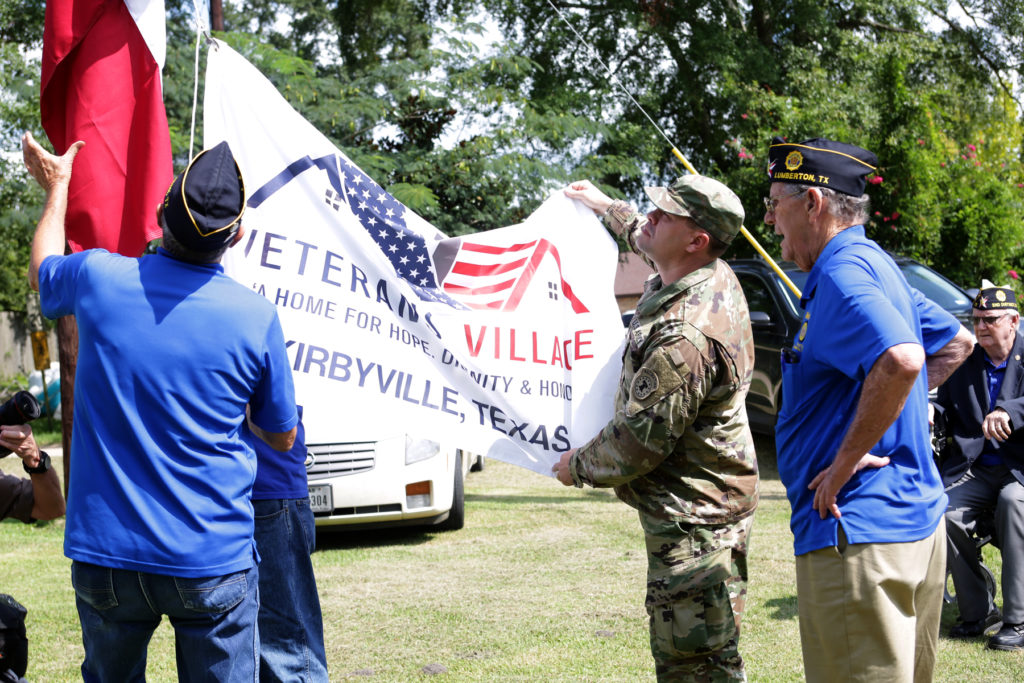
Bell is deeply grateful for the partnership of Father Foshage, whose seed money was one of their largest private donations and a critically timed catalyst for the nonprofit as it was struggling to get off the ground.
Father Foshage, Bell said, “always shows up, is always positive and always inspires. He has a heart for the poor and it doesn’t matter what faith they are.”
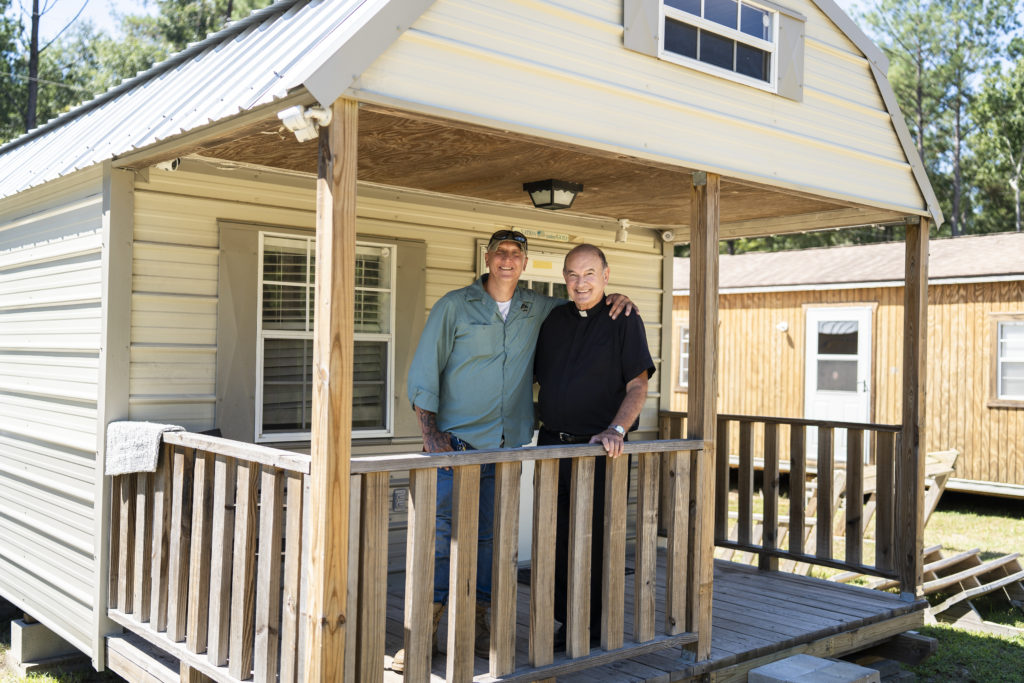
Together, Bell and Father Foshage are calling attention to rural homelessness, a population that can easily fall between the cracks compared to those in urban areas. Bell said that “it is going to take a higher power to provide” for them to be successful, especially because smaller nonprofits like theirs don’t typically qualify for housing development grants.
But God has indeed already provided by sending these homeless veterans an ally named Father Foshage, who, despite being stretched thin and overworked, always manages to find time for those most in need.
Donate to help us support Catholic ministries like this in America’s poorest regions.


